第406章 VOLUME VI(37)
Ordered, by the President of the United States, That the Attorney-General be charged with the superintendence and direction of all proceedings to be had under the act of Congress of the 17th of July, 1862, entitled "An act to suppress insurrection, to punish treason and rebellion, to seize and confiscate the property of rebels, and for other purposes," in so far as may concern the seizure, prosecution, and condemnation of the estate, property, and effects of rebels and traitors, as mentioned and provided for in the fifth, sixth, and seventh sections of the said act of Congress. And the Attorney-General is authorized and required to give to the attorneys and marshals of the United States such instructions and directions as he may find needful and convenient touching all such seizures, prosecutions, and condemnations, and, moreover, to authorize all such attorneys and marshals, whenever there may be reasonable ground to fear any forcible resistance to them in the discharge of their respective duties in this behalf, to call upon any military officer in command of the forces of the United States to give to them such aid, protection, and support as may be necessary to enable them safely and efficiently to discharge their respective duties; and all such commanding officers are required promptly to obey such call, and to render the necessary service as far as may be in their power consistently with their other duties.
ABRAHAM LINCOLN.
By the President:
EDWARD BATES, Attorney-General TELEGRAM TO GOVERNOR JOHNSON.
WAR DEPARTMENT, November 14, 1862.
GOV. ANDREW JOHNSON, Nashville, Tennessee:
Your despatch of the 4th, about returning troops from western Virginia to Tennessee, is just received, and I have been to General Halleck with it. He says an order has already been made by which those troops have already moved, or soon will move, to Tennessee.
A. LINCOLN.
GENERAL ORDER RESPECTING THE OBSERVANCE OF
THE SABBATH DAY IN THE ARMY AND NAVY.
EXECUTIVE MANSION, WASHINGTON, November 15, 1862.
The President, Commander-in-Chief of the Army and Navy, desires and enjoins the orderly observance of the Sabbath by the officers and men in the military and naval service. The importance for man and beast of the prescribed weekly rest, the sacred rights of Christian soldiers and sailors, a becoming deference to the best sentiment of a Christian people, and a due regard for the divine will demand that Sunday labor in the army and navy be reduced to the measure of strict necessity.
The discipline and character of the national forces should not suffer nor the cause they defend be imperilled by the profanation of the day or name of the Most High. "At this time of public distress," adopting the words of Washington in 1776, "men may find enough to do in the service of God and their country without abandoning themselves to vice and immorality." The first general order issued by the Father of his Country after the Declaration of Independence indicates the spirit in which our institutions were founded and should ever be defended:
"The General hopes and trusts that every officer and man will endeavor to live and act as becomes a Christian soldier defending the dearest rights and liberties of his country."
ABRAHAM LINCOLN.
TELEGRAM TO GENERAL BLAIR
EXECUTIVE MANSION, WASHINGTON, November 17,1862.
HON. F. P. BLAIR:
Your brother says you are solicitous to be ordered to join General McLernand. I suppose you are ordered to Helena; this means that you are to form part of McLernand's expedition as it moves down the river; and General McLernand is so informed. I will see General Halleck as to whether the additional force you mention can go with you.
A. LINCOLN.
TELEGRAM TO GENERAL J. A. DIX.
WASHINGTON, D. C., November 18, 1861.
MAJOR-GENERAL Dix, Fort Monroe:
Please give me your best opinion as to the number of the enemy now at Richmond and also at Petersburg.
A. LINCOLN.
TO GOVERNOR SHEPLEY.
EXECUTIVE MANSION, WASHINGTON, November 21, 1862.
HON. G. F. SHEPLEY.
DEAR SIR:--Dr. Kennedy, bearer of this, has some apprehension that Federal officers not citizens of Louisiana may be set up as candidates for Congress in that State. In my view there could be no possible object in such an election. We do not particularly need members of Congress from there to enable us to get along with legislation here. What we do want is the conclusive evidence that respectable citizens of Louisiana are willing to be members of Congress and to swear support to the Constitution, and that other respectable citizens there are willing to vote for them and send them. To send a parcel of Northern men here as representatives, elected, as would be understood (and perhaps really so), at the point of the bayonet, would be disgusting and outrageous; and were I a member of Congress here, I would vote against admitting any such man to a seat.
Yours very truly, A. LINCOLN, ORDER PROHIBITING THE EXPORT OF ARMS AND
MUNITIONS OF WAR.
EXECUTIVE MANSION, WASHINGTON, November 21, 1862.
Ordered, That no arms, ammunition, or munitions of war be cleared or allowed to be exported from the United States until further orders.
That any clearance for arms, ammunition, or munitions of war issued heretofore by the Treasury Department be vacated, if the articles have not passed without the United States, and the articles stopped.
That the Secretary of War hold possession of the arms, etc., recently seized by his order at Rouse's Point, bound for Canada.
ABRAHAM LINCOLN.
DELAYING TACTICS OF GENERALS
TO GENERAL N. P. BANKS.
EXECUTIVE MANSION, WASHINGTON, November 22, 1862.